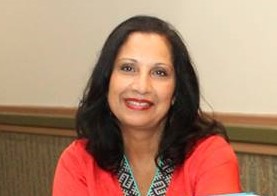On Sunday evening we had just returned from a fabulous family weekend at Reza and Amna’s house, when my friend Nuzzo texted me that Imran Khan was addressing Pakistani Americans at a huge rally in Washington DC. We quickly tuned into ARY news and started watching the live coverage of this historic event as it was one of the largest ever.
Only a few days ago, I had presented on the status of women and girls in Pakistan to my dear friends at Dining for Women, and they had asked me many things about why women are married off early, why there are honor killings, why education is so hard? They had also asked about Imran Khan, and what people in Pakistan think of him, and I had shared how young people are optimistic for the first time. They had asked about US Pakistan relations and I had to laugh! It reminded me of a book that President Ayub Khan wrote called “Friends not Masters” back in the 60’s. In terms of women’s rights, things have gone backward since a hundred years ago. Isn’t it interesting? We always project the future as if it is an upward smooth curve where things get better and better. And certainly the 21st century has shown us how mistaken we are to believe this, as we see the two parallel paths of technological progress and the regression to Middle Age Mindset (overly emotional, self-righteous, blame oriented, feeling entitled, feeling superior, intrusive versus inclusive, violence versus dialogue, etc.) all over the planet. And oddly enough, technology is amplifying these negative traits instead of helping the healing.
In any case, Imran Khan’s speech was honest and insightful, and I pray that he is able to surround himself with people who are as honest and committed as he is. He talked about Pakistan’s failure as a state due to two main things: lack of accountability of leaders, and corruption or lack of meritocracy. Leaving aside the fact that the challenges in front of him are incredibly entrenched in culture, custom, and that they are indeed now a rallying point for all the reactionary forces against him, I was so appreciative that he did air the dirty laundry. He used Islamic history, specifically Prophet Mohammed’s teachings and principles, the city of Medina’s constitution and human rights as his ideal and how equality, justice and human rights were practiced there so long ago.
What was most striking in how he described that period of history- which was a new insight for me, even though I have studied Islamic history- was that the key principle was “mercy”, i.e. the state ensured that the rich supported the poor through progressive taxation and other means. When I think of the word “mercy”, or its more holistic meaning “raham” in Urdu, I newly appreciate its power in the public space and in government, specially as we see the total opposite in our domestic and foreign politics today with the treatment of immigrants and refugees, the working poor as well as our treatment of other states. Another word that comes up for me is “compassion”. Instead of criticizing the needy (whether it is a failed family or a failed state), we should look to understand how they came to be in that situation, and what historic and other factors contributed to their lack of material success. If mercy and compassion were in everyone’s hearts, especially our leaders and our corporations, the world would look different today. Maybe these “old” values will help our progress and human enlightenment in general one day.

Be First to Comment